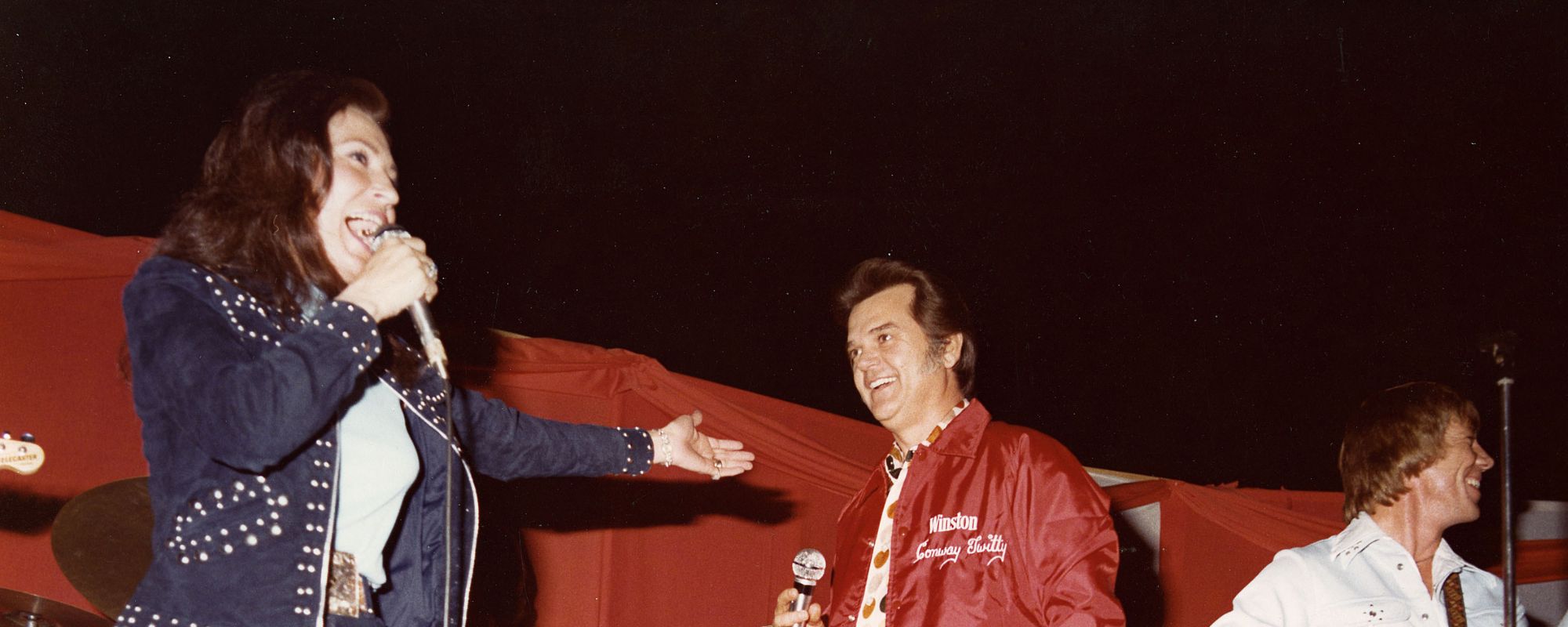In 2004, Arcade Fire was, according to singer and guitarist Win Butler, “the flavor of the month.” Many bands emerge with great hype, but the frenzy surrounding Arcade Fire was something different.
Videos by American Songwriter
How great was the hype? David Bowie and David Byrne attended an early show at the Bowery Ballroom in New York City. And critics collectively praised the band’s debut Funeral. So what was all the fuss about? Anthems.
Arcade Fire exists for catharsis. Butler sings with desperation, and the concerts resemble a kind of church. But instead of pews, the community gathers in festival fields where Butler and his wife, Régine Chassagne, with bandmates Richard Reed Parry, Tim Kingsbury, and Jeremy Gara. Until 2021, Win’s younger brother Will Butler led healing singalongs.
These anthems are the reason why people flock to see Arcade Fire.
“Wake Up” from ‘Funeral’ (2004)
Let’s begin at the beginning. Funeral introduces an ambitious band on a record that made nearly as many best-of-decade lists as Radiohead’s Kid A. And the indie hymn “Wake Up” sounds no less powerful than it did two decades ago. The song’s “whoa-ohs” gave indie rock its own “Hey Jude” and though the track warns children of the disappointment of adulthood, it somehow remains uplifting and celestial when Butler screams: “I guess we’ll just have to adjust.”
“Rebellion (Lies)” from ‘Funeral’ (2004)
When describing the music of Arcade Fire, it’s hard to avoid the word anthem as a descriptor. But the band came out of the gate with an album full of rousing choruses begging to be chanted in unison. Even Bruce Springsteen had to work through two albums before dropping Born To Run. And if the guy they call The Boss needed time to get there, what do you call Arcade Fire? “Rebellion (Lies)” unpacks the fear of childhood in a suburban tale about experience and truth.
“The Suburbs” from ‘The Suburbs’ (2010)
Arcade Fire’s third album took home the GRAMMY for Album of the Year. It’s more direct musically and lyrically than Funeral or Neon Bible. Here, the band returns to the suburbs, and the kids have grown up, started families, and now struggle in the same neighborhoods they wanted to escape on Funeral.
Think of “The Suburbs” as nostalgia coming face to face with reality—putting into focus what the memory once obscured. Its swinging piano groove gives the illusion of happiness, like the veneer of a manicured neighborhood. Yet Butler sings about a decaying town where he hopes to raise a daughter before nothing’s left of it. Before his memories are replaced with new houses built over the old ones.
“Reflektor” from ‘Reflektor’ (2013)
Butler described the elaborate and mysterious rollout of Reflektor as a “weird art project.” The marketing campaign created a universal event around the double album. A collective experience that, in 2013, was becoming a thing of the past for releasing new rock albums.
Co-produced with Markus Dravs and LCD Soundsystem’s James Murphy, Reflektor is a bold statement from a band already famous for grandiose productions. Meanwhile, Chassagne’s voice swirls around David Bowie’s on the title track, with Butler using metaphors to describe life in the digital age.
Photo by John Barry/Shutterstock












Leave a Reply
Only members can comment. Become a member. Already a member? Log in.